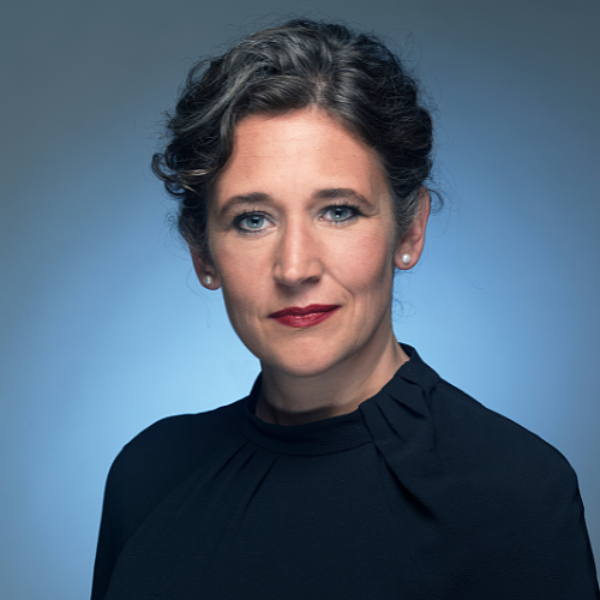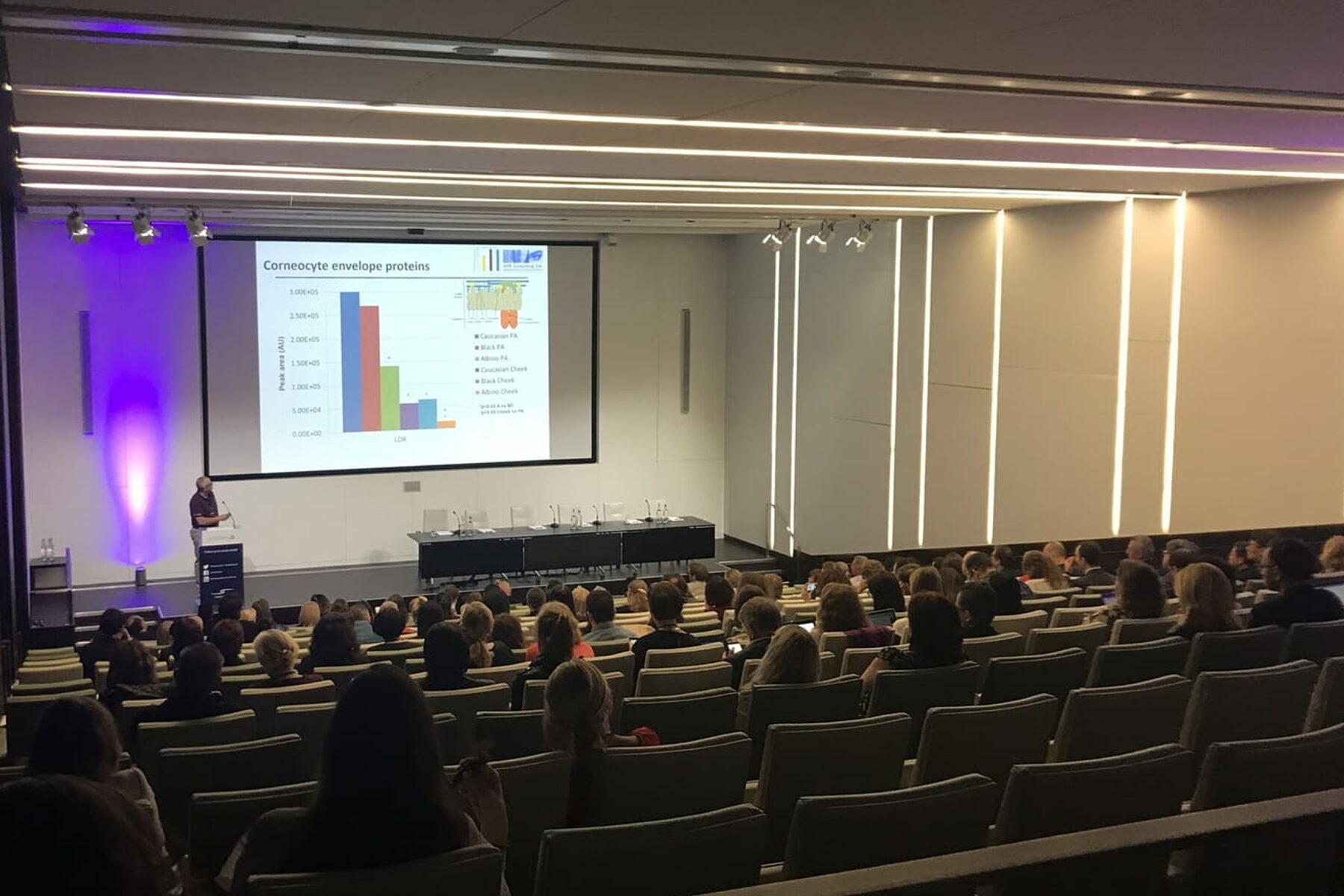
Speaker programme 2024
25 - 26 June 2024Royal College of Physicians, London
Speakers 2024
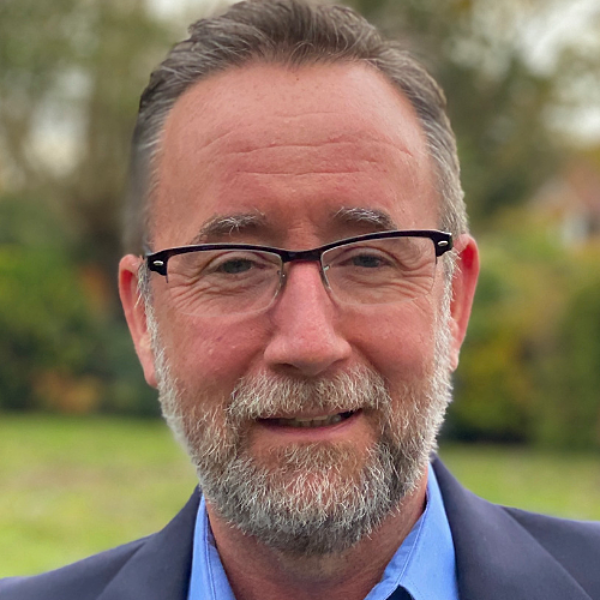
Prof David J Moore PhD, FRSC
Honorary Professor (Skin Biophysics)School of Physics & Astronomy, The University of Edinburgh
SPEAKER
The Skin Barrier and Ageing: Approaches to Healthy Skin Ageing through Skincare and Lifestyle
Biography
David is a professor of skin biophysics at the University of Edinburgh. For over 25 years he has been involved in industry based biophysical, materials science, skin barrier, and topical formulation across the specialty chemical, consumer healthcare, pharmaceutical, and contract research sectors. During his career David worked for Unilever, ISP (now Ashland), TRI Princeton, Tioga Research and GSK in the US and UK. His research interests have focused on skin barrier and membrane biophysics, measurement science, skin biology, soft matter, topical formulations and materials science. David has held visiting academic positions at Rutgers University, Princeton University, University College London, and is currently an Adjunct Professor in the Cosmetic Science program at the University of Cincinnati. David has served as an industrial advisor to doctoral students at University College London, Stanford University, Princeton University, Rutgers University in the US and the Universities of Newcastle, Durham, Leeds, and Edinburgh and Imperial College in the UK. He is the co-author of over 100 papers, review articles and book chapters in the fields of skin barrier science, topical delivery, lipid biophysics, spectroscopy and imaging and presents regularly at international scientific and dermatological conferences. In 2019 David co-chaired the Gordon Research Conference on "The Barrier Function of Mammalian Skin".
Presentation Outline
The skin’s permeability barrier function is essential to human health by protecting the body from unregulated water loss and the penetration of exogenous irritants and allergens. This barrier function is primarily provided by the stratum corneum (SC), the outer 10-20 microns of the epidermis. The SC can be imagined as a smart composite material whose composition, biochemical activity, structure, and organisation is tightly controlled across its depth; from the inner layers adjacent to the viable epidermis, to the outer air exposed layers that are shed daily. In addition to controlling permeability, the skin barrier is integral to many other aspects of health including thermal regulation and mechanical integrity. Increased focus on healthy ageing has provided new understanding of the biological, biophysical, and functional changes that occur in the ageing skin barrier. Highlights from the most recent peer-reviewed literature will be discussed in the context of intrinsic and extrinsic skin ageing and the consequences to both skin and systemic health. Opportunities for therapeutic approaches to protect, maintain and repair ageing skin and maintain optimal skin barrier health, i.e., healthy skin ageing, will be discussed.
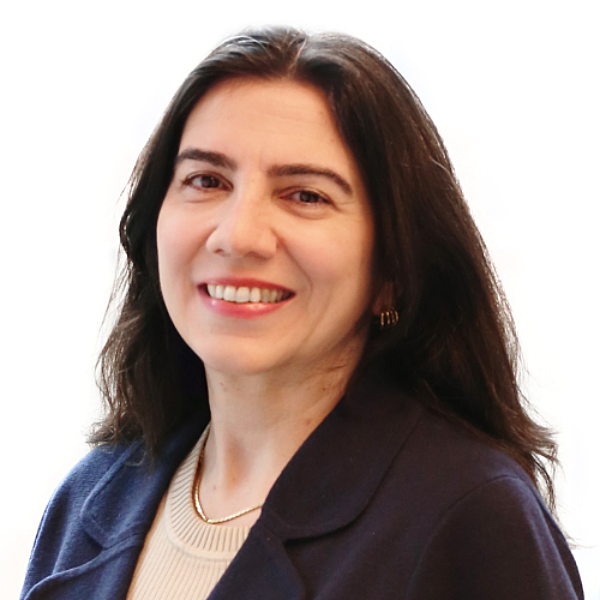
Annie M. Ugurlayan
Assistant DirectorNational Advertising Division of BBB National Programs, USA
SPEAKER
US Advertising Self-Regulation’s Overview of Anti-Ageing Claims in the Beauty Industry
Biography
Annie Ugurlayan is an Assistant Director at the National Advertising Division (NAD) and Deputy Director at the National Advertising Review Board (NARB) of the BBB National Programs. She joined NAD in 2003 and handles a wide variety of cases. She has also successfully argued appeals before the National Advertising Review Board. Annie oversees case management, NAD’s monitoring cases, and advises first-time participants on the NAD Procedures and process. She is NAD’s liaison to the local Better Business Bureaus. Annie is also a frequent lecturer at conferences nationwide and abroad, particularly on cosmetics advertising on which has developed an expertise. She became Deputy Director at the NARB in 2019 overseeing NARB’s administrative matters and drafts NARB compliance decision on behalf of NAD.
Prior to joining NAD, Annie was an associate at O’Hare Parnagian LLP. She is also a published author and is actively involved in various bar associations, including Co-Chair of the Advertising Disputes and Litigation Committee of the ABA’s Section of Antitrust Law. Annie is also a Fellow of the American Bar Foundation. Annie is fluent in French and Armenian and proficient in Romanian. She is a graduate of Hamilton College (B.A., magna cum laude) and the Maurice A. Deane School of Law at Hofstra University.Presentation Outline
Learn about a wide range of claims, from well-established anti-aging claims to more cutting-edge claims (e.g., clean), through case studies. This panel will help you understand the rules of the road in claim substantiation in the ever-expanding beauty industry and ensure your claims avoid regulatory oversight or litigation risks.
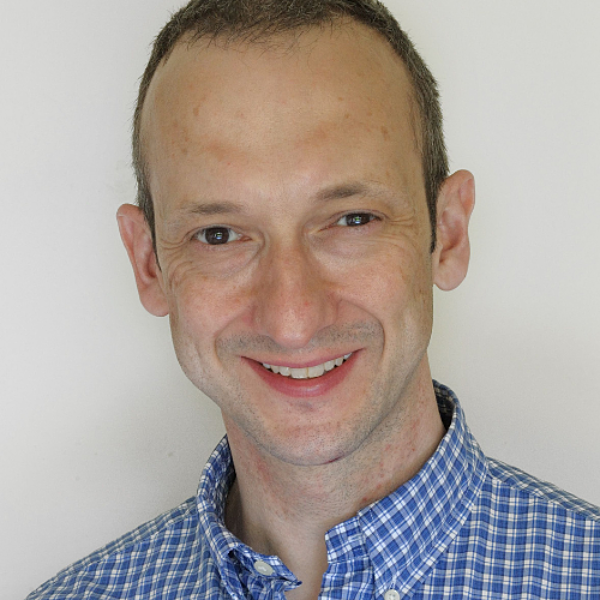
Prof Andrew James McBain
Professor of MicrobiologyUniversity of Manchester
KEYNOTE SPEAKER
The Skin Microbiome in Ageing and Options for Microbiome-based Intervention
Biography
Andrew James McBain (born 1971) is a Professor of Microbiology at the University of Manchester. His research is focused on the human microbiome, responses of biofilms to antimicrobial treatments, and the interaction of microorganisms colonising the skin, nasopharynx, oral cavity and intestine.
He graduated with a first-class degree in Microbiology from the University of Liverpool in 1993 and completed his PhD at Queens' College, Cambridge in 1997.
He was awarded the W H Pierce Prize of the Society for Applied Microbiology in 2005. He has an h-index of 48 according to Google Scholar.Presentation Outline
The potential role of the microbiome in overall skin health and in skin ageing is being increasingly recognised. Microbiome research is often complicated by considerations of correlation versus causation, and this applies to studies of human ageing as much as anywhere else. However, ageing-related changes in microbiome composition have been reported and ongoing research should focus on potential mechanisms, which may involve direct interaction with the skin and the host immune system, and the production of microbial metabolites. Microbiome-based interventions, such as probiotics, prebiotics, and postbiotics, have emerged as potential therapeutic strategies to modulate the skin microbiome and promote healthy skin ageing. This presentation will explore the current understanding of the skin microbiome's role in ageing and discuss potential microbiome-based interventions for promoting healthy skin ageing.
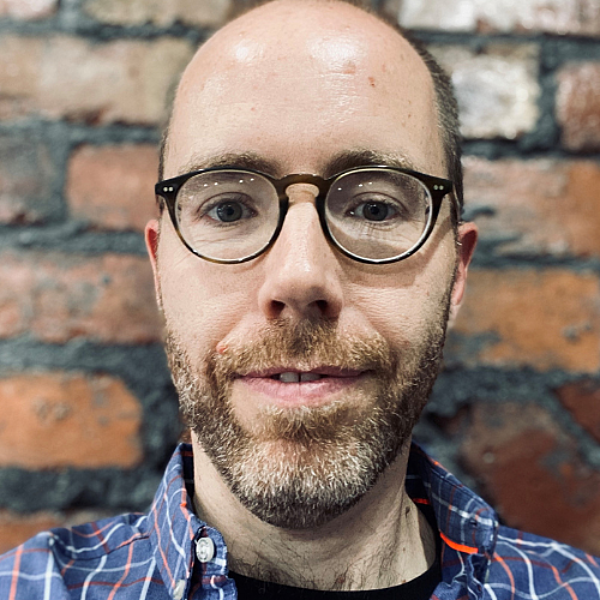
Dr Timo Giesbrecht
Consumer Science LeaderUNILEVER UK
KEYNOTE SPEAKER
A Deeper Look: Age and Beauty Perception Extends Beyond the Visual Domain
Biography
Timo joined Unilever in 2008 and has since worked at Unilever’s European R&D centers in Vlaardingen (NL) and Port Sunlight (UK) on innovation projects spanning many product categories and geographies. Timo has a 15-year track record of implementing cutting-edge consumer research to shape innovations and scientifically robust new claims for major Personal Care, Foods & Refreshment, and Home Care brands. In his work, he employs a wide array of measures and paradigms such as neuroimaging, psychophysiological measures, and behavioral tasks in collaboration with leading academics around the world.
Before joining Unilever, Timo worked at Maastricht University, Mount Sinai School of Medicine in New York, and Humboldt University Berlin. Timo has published more than 100 scientific papers and book chapters, and his Hirsch Index is 39.Presentation Outline
Traditionally, research on the perception of age has focused on the visual manifestations of ageing, such as wrinkles and fine lines. While these visual manifestations of ageing play a key role, other sensory domains, such as olfaction, and even your current mental state (i.e., how you feel at that very moment) have a critical contribution to how you and others appraise your appearance. During the presentation, research employing a range of methods such as psychophysics and neuroimaging will be discussed that aimed to elucidate the contribution of visual characteristics, olfaction, and mental state on appearance. In addition, developments in neuroscience methodologies will be highlighted that will open up novel research avenues for the domain of age perception.
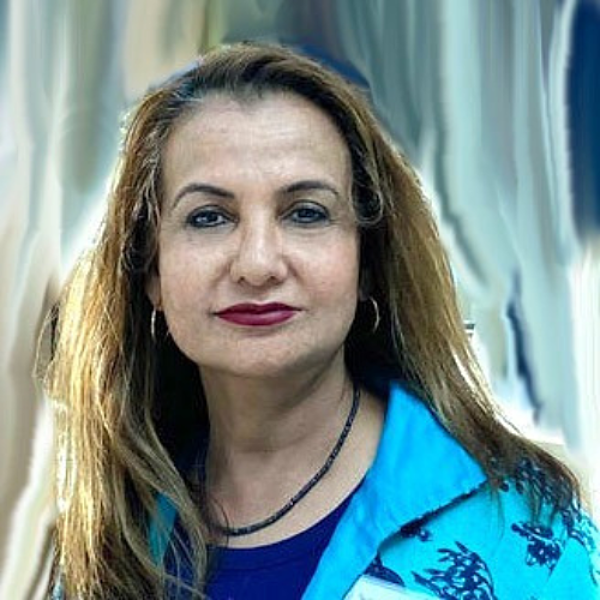
Dr Neelam Muizzuddin
PresidentSkin Clinical Research and Data Mining
SPEAKER
Changes in Facial Anatomy with Age
Biography
Neelam Muizzuddin is operating a consulting company where she offers skin clinical research designing, testing, data mining and training as well as preparing manuscripts for publication.
Neelam has worked in the cosmetic industry for over three decades as a Clinical Research Scientist. She has extensive expertise in managing GCP compliant clinical studies pertaining to safety and efficacy of topical materials and is proficient in utilizing skin bioengineering instrumentations for skin measurements.
She has several publications as book chapters, patents and peer reviewed journals. At present she is President of “Skin Clinical Research Consultants LLC” and Adjunct Professor at SUNY Stony Brook.
She is a Member of several skin measurement and dermatology societies and actively participates in the administration of scientific conferences in her field. She is also an instrument rated pilot an artist and a pastry chef.Presentation Outline
Youthful and healthy appearance is a common desire of the ageing population. Changes in ageing facial features are being extensively studied in the dermatology and cosmetic field, perhaps, in an attempt to devise strategies to reverse some of the changes from chronological and actinic ageing.
Facial ageing is a dynamic process involving the aging of skin as well as structural rearrangement of underlying fat tissue, musculature and bony structures. Skin changes are among the most visible signs of aging. Evidence of increasing age includes wrinkles and sagging skin. The typical ageing face consists of thinning skin and loss of muscle tone which gives the face a flabby or drooping appearance. Sagging jowls are a typical sign of the quadragenarian.
Epidermal thinning and the decrease in collagen cause skin to lose its elasticity. Additionally, loss of fat, coupled with gravity and muscle pull, leads to wrinkling and the formation of dynamic lines. The aging process has also been shown to affect the facial bones. This loss of bony volume and projection contributes to facial ageing appearance.
The aging appearance of eyes includes lower eyelid laxity and droop of the upper eyelid. Changes in eye aging differs in Asians as compared to Caucasians. Similarly, it has been observed that women who look young for their age have larger lips. Lips are generally thicker in young subjects and thinning of lips with age also differs in different ethnicities. Like other organs, the nose also changes with age. This presentation will discuss details of micro changes in the face that lead to macroscopic appearance of facial ageing as well as possible treatment.
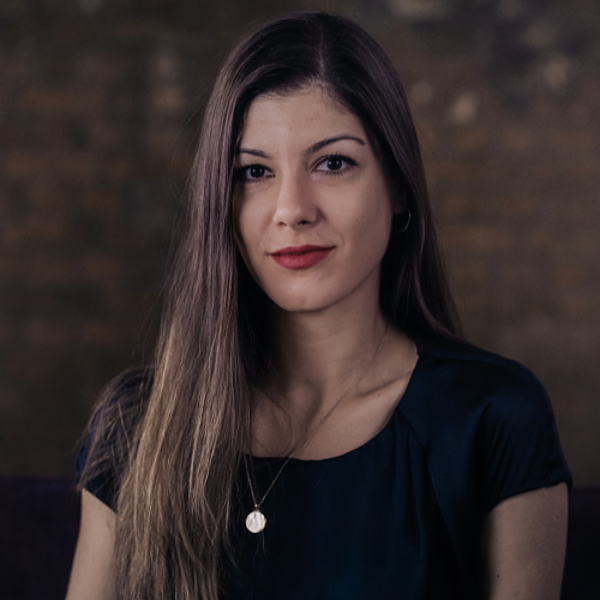
Dr Cristiana Banila
Co-Founder & Chief Scientific OfficerMitra bio
SPEAKER
Unlocking the Potential of Skin Rejuvenation with Epigenetic Biomarkers
Biography
Cristiana is a firm believer in harnessing the power of epigenomics to enhance health spans and advance precision therapies. Cristiana is the CSO and co-founder of Mitra Bio, a London-based start-up focused on efficient non-invasive skin diagnosis for precision treatments through AI and epigenetics data. Within Mitra Bio, she leads the translation of the technology into industrial settings, currently working in partnership with top skincare companies to optimise anti-ageing and rejuvenation topicals for the skin. Mitra Bio also collaborates with a leading dermatology hospital in the UK to apply the technology for the detection and prognosis of skin cancer, with the aim to reduce the number of unnecessary biopsies required for diagnosis. Cristiana graduated from Oxford and Princeton Universities where she studied Biochemistry and Public Health Economics. She specialised in molecular diagnostics development, having earned a PhD from Queen Mary University of London on developing a self-sampling epigenetics-based test for early cancer detection. The test is currently in clinical trials for implementation in the NHS cervical screening programme. Cristiana has recently been named as Forbes 30 under 30 Science & Healthcare Europe.
Presentation Outline
Aging, disease and interventions on the skin lead to changes in the epigenetic landscape that subsequently morph into altered patterns of gene expression. So far mostly invasive methodologies such as biopsies have been applied towards collecting DNA methylation signatures. Mitra bio is replacing invasive biopsies with a viable non-invasive approach for studying skin DNA methylation, showing how ageing is impacting the epigenetic markers and how specific interventions are promoting rejuvenation. By utilising large scape epigenetic data, Mitra Bio is proposing a powerful screening tool for ageing conditions and paves the way towards personalised skincare routines.
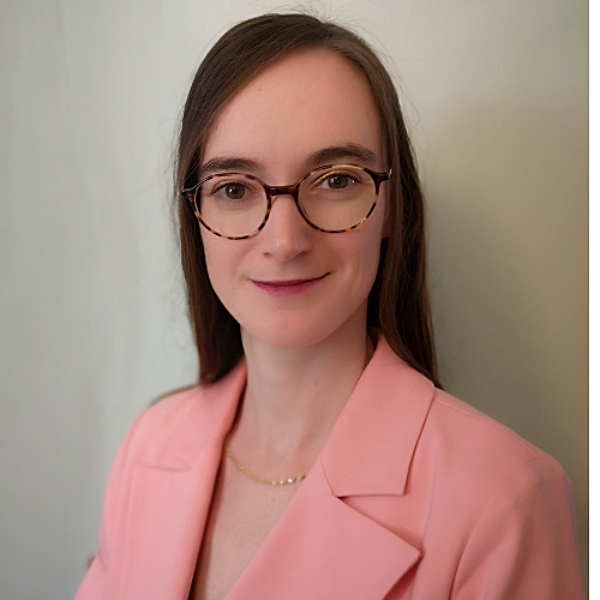
Juliette Rengot
Technical Leader in Artificial IntelligenceNewtone Technologies
SPEAKER
New Digital AI-based Tool to Support Clinical Anti-Ageing Evaluation
Biography
Juliette Rengot is a 28-year-old French woman, who is passionate about artificial intelligence. Juliette studied engineering at Ecole Nationale des Ponts et Chaussées in Paris, where she specialised in mathematics, computer vision and machine learning. During her studies, Juliette took a gap year, which led her to the Honda Research Institute in Japan working on a project that aimed at translating Japanese writing into sign language. Juliette then shared the impact of data augmentations at an international conference (LREC 2018).
Juliette joined Newtone Technologies in 2019 to assist in the development of computer vision and machine learning algorithms to highlight the product effects in dermocosmetics. Juliette is currently the technical leader in artificial intelligence, her mission consists of developing innovative solutions to improve the evaluation and monitoring of the clinical signs. Juliette is passionate about the importance of communicating research progress and regularly attends the conferences and exhibitions such as ‘Computing Conference 2020’, ‘IFSCC 2022’, and ‘InCosmetics 2023)’.Presentation Outline
In the field of anti-ageing products performance assessment, the importance of crow’s feet wrinkles no longer needs to be demonstrated. Several techniques are often put in place to get objective characterisation of these attributes, from image analysis, in 2D or 3D, to clinical visual grading.
After an overview of the main techniques, the presentation aims at introducing a new digital standardised computer-generated scale to be used in clinical testing, as a support to the expert. A comparison of this approach with existing photographic scales will be presented, as well as a discussion about its potential added value. In particular, a focus will be on the significative contribution of Artificial Intelligence in the construction of this tool.
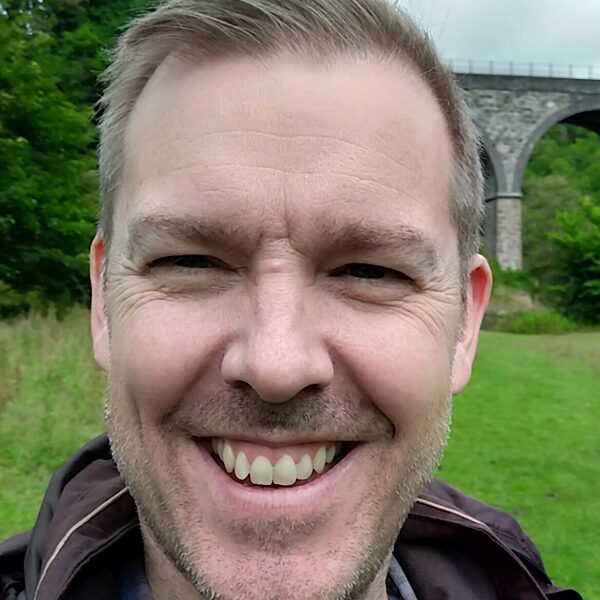
Dr David Gunn B.Sc.(Hons), D.Phil.
Senior Scientist and Leader Unileaver KCL Innovation HubUNILEVER
KEYNOTE SPEAKER
Looking Younger – More than Skin Deep?
Biography
After gaining a PhD in genetics, Dr Gunn carried out postdoctoral research at Newcastle University before joining Unilever Research and Development in the UK. Focusing initially on genomic investigations into the mechanisms of skin health and ageing, this has evolved over the years to leading small to large collaborative research projects with various Universities investigating skin, hair, and facial ageing, health and longevity. Dr Gunn is now the leader of the KCL Unilever Biosciences Innovation Hub at King’s College London covering Unilever R&D projects and KCL collaborations. As well as filing patents and author to over 50 scientific journal articles, Dr Gunn’s research has been of particular interest to the layperson leading to coverage by TV and radio news channels, digital media and at international conferences. Working at the interface between basic scientific research and translational science, Dr Gunn’s work focuses on how biological insights can be translated into benefits for the general public and for the Unilever business alike.
Presentation Outline
As we age, there are notable changes in the appearance of skin including wrinkling, age spots and laxity. Are these changes driven by skin specific ageing processes that do not reflect changes occurring within the rest of the body? For example, sun-exposure causes damage to DNA and structural proteins (e.g. collagen) within skin, and it does not penetrate beyond the dermis making it an ageing driver unique to skin. Indeed, sun-exposure boosts Vitamin D production in skin which is required for bone health, and associates with ‘wellbeing’ hormones such as increased serotonin and endorphin levels. Hence, although cumulative sun-exposure can prematurely age skin, its hormone benefits suggest that aspects of health might actually associate with an aged skin appearance. In contrast, many ageing mechanisms (e.g. metabolism driven oxidative stress, cell senescence) occur similarly in skin as they do in other body tissues, which might suggest a commonality between the two and, as a consequence, a link between an aged appearance and a greater risk of disease.
What does the scientific evidence tell us? Is skin ageing linked to worse or better health? Do underlying tissues that support the structure of the skin also play a role in how appearance links to health? Here, I review current knowledge on skin ageing and its links to health, and cover recent findings linking looking younger for one’s age and lower prevalence of various conditions and diseases. In addition, I will discuss what these findings mean in the context of skin ageing research as well as for advice on how we can optimise not only our appearance but our health into old age.
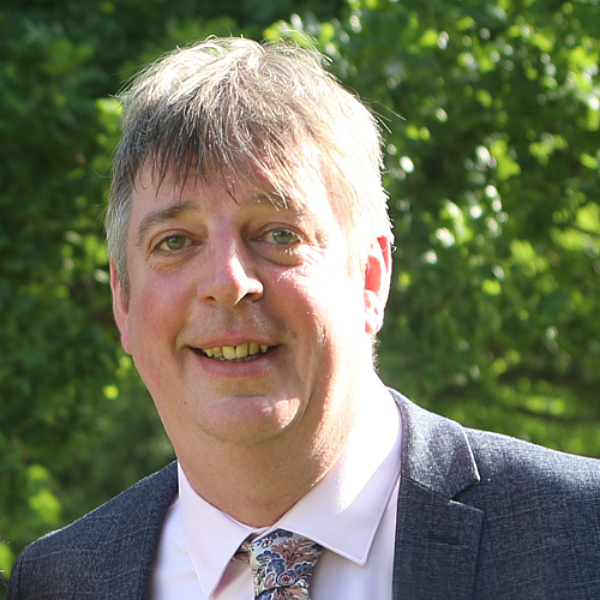
Daniel Whitby
Chief ScientistSMINK Ltd
SPEAKER
Exploring the Application of Digital Technology to Evaluate Products, Engage Consumers & Enhance our Ageing Selves
Biography
Daniel Whitby has worked in the beauty industry for more than 25 years in a variety of scientific roles including formulation, innovation and claims testing. More recently his expertise has expanded into collecting and curating trends, thoughtfully exploring and understanding how they will impact and change the future of the industry.
In his role as Chief Scientist at Smink Ltd Daniel works with a team of right brained scientists to produce purpose led products which delight consumers and drive value for brands. He lectures on the Cosmetic Science BSc and MSc courses at University of Sunderland and is a regular contributor to Cosmetics Business.Presentation Outline
Digital technology is a rapidly growing field of discovery with multiple end applications. Beauty is an industry driven by innovation and the new. This can include new ways to evaluate product efficacy, to guide product use and to drive sales. It can also provide solutions to areas such as personalisation, compliance with product use and friction-less product replenishment. The Wellness and Wellbeing industries are driving a more holistic approach to how we age, not only in terms of beauty but also complete healthy ageing. Once we understand what the hallmarks of ageing are we will have the capability to understand our past exposures but also track our future improvements allowing a more proactive approach to health through the generations.
In this presentation insights from a wide variety of sources covering science, marketing, consumers and technology will be shared. The importance of digital to longevity will be explored and strategies for implementation shared.
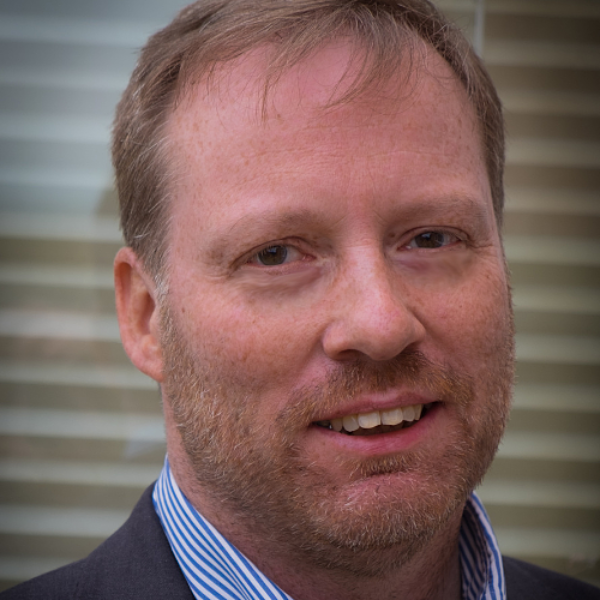
Stewart Long FRSC
Chief Executive OfficerCutest Systems Ltd
SPEAKER
A Multidisciplinary Approach to Understanding Healthy Skin Ageing: Biophysical Measurements and Omics applied to Menopausal Skin
Biography
A biochemist, with over 30 years’ experience in the beauty industry. I am Chief Executive Officer of Cutest Systems Ltd, providing claims and safety data for beauty companies globally. I began my career with Unilever. After 8 years of stratum corneum research, I joined Boots, where I held positions of Claims Innovation Manager, Product Evaluation Manager, Haircare Scientific Adviser and Skincare Scientific Adviser over a 12 year career. In 2010 I joined Dow Corning in Belgium as Global Market Leader for Skincare. I joined Cutest in November 2015. I was honoured to be President of the Society of Cosmetic Scientists 2020-21 and Chair of the Scientific and Awards Committee for IFSCC 2022 Congress in London. I am a Fellow of the Royal Society of Chemistry. In 2024, Cutest Systems is celebrating 40 years of research and innovation as a clinical trials company serving the beauty, medical device and pharma industries.
Presentation Outline
The changes seen in the skin as we age are accelerated by the menopause. Declining oestrogen levels are known to impact the biophysical properties of the skin and to influence extracellular matrix structure and function, barrier function and skin reactivity. Studies have described the histological changes and the altered biophysical properties of pre and post menopausal skin. In this talk, we will present data linking clinical and biophysical properties of the skin to changes in gene expression and protein expression sampled in vivo using innovative methodologies. Using qPCR and proteomics in clinical studies allows a deeper understanding of the changes occurring in the skin, opening up new targets for supporting healthy skin ageing and new ways of assessing potential interventions in vivo that can target specific skin processes and provide consumers with better solutions for healthy skin as they age.
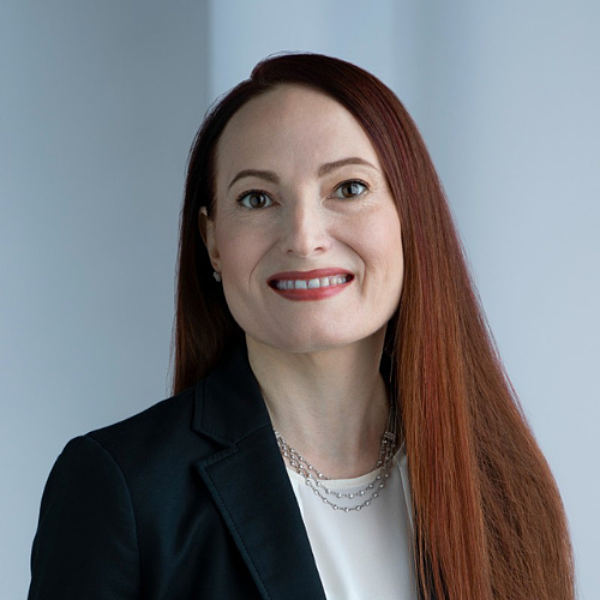
Dr Helen Knaggs
Head of Global Product Research and DevelopmentNu Skin Enterprises
SPEAKER
Beyond Skin Care - Taking a Holistic Approach to Well-Ageing
Biography
Dr Helen Knaggs is Head of Global Product Research and Development at Nu Skin Enterprises, Provo, Utah, USA. In this role, she oversees design and development of all personal care, devices and wellness products, leading a global R&D team, maintaining the current portfolio and supporting innovation and new product launches. Additionally, Dr Knaggs is chair of Nu Skin’s Women Rising Employee Resource Group, helping to launch initiatives that empower women within the workplace and around the community.
Dr Knaggs has over 30 years of experience in product research and development stemming from receiving a BSc in Biochemistry and Pharmacology, a PhD from the Department of Biochemistry and Molecular Biology at the University of Leeds, England and MBA from University of Warwick, UK. She started her career as a research biochemist in the dermatology department of Leeds General Infirmary and then worked for Unilever in United States and Asia. She has multiple scientific publications and patents.Presentation Outline
Helen Knaggs, PhD, MBA1; Ganesh Diwaker PhD1; Edwin Lephart PhD2. (Helen Knaggs presenting)
1. Global Research and Development, NuSkin Enterprises, Provo, Utah 84601, USA.
2. Department of Cell Biology, Physiology and The Neuroscience Center, College of Life Sciences, Brigham Young University, Provo, Utah, USA 84602;
‘Lifestyle health’ is being recognized as an important contributor to both the prevention and treatment of disease, providing an important adjunctive component to overall health. A 2023 study showed that lifestyle habits, such as good nutrition, regular and adequate rest, staying active and positive social relationships can build on each other, potentially adding up to 24 years of life extension and enhancing quality of life. Of all the organs in the body, the skin is the most conspicuous, and so is often used to judge an individual’s health and age. A factor that is important in how someone ages is their exposome, defined as the measure of all the exposures in a lifetime and how those exposures relate to health.
Just as exposomes can accelerate aging, ‘smart’ lifestyle choices can influence the aging trajectory and produce benefits, for example choices around adequate sleep, nutrition, exercise, mental health, skin health, product usage, community engagement and social interaction. Understanding how exposures, both ‘good’ and ‘bad’ interact with our own unique characteristics such as genetics, physiology and epigenetics to impact our health and skin appearance will likely pave the way towards offering of more personalized choices with greater potential for successful intervention. Intervening with right lifestyle choices, including products, could result in more successful anti-aging and wellness outcomes. Examples provided will include a topical adaptogen that protects against intrinsic and extrinsic stressors and a supplement, alone or in combination with a non-invasive aesthetic device promotes wellness attributes.
Biography
Andrea B. Maier (1978), a Fellow of the Royal Australasian College of Physicians (FRACP), graduated in Medicine (MD) 2003 from the University of Lübeck (Germany), was registered 2009 in The Netherlands as Specialist in Internal Medicine-Geriatrics and was appointed Full Professor of Gerontology at Vrije Universiteit Amsterdam (The Netherlands) in 2013. She was the head of Geriatrics at the Vrije Universiteit Medical Center from 2012 to 2016. From 2016 to early 2021 Professor Maier served as Divisional Director of Medicine and Community Care at the Royal Melbourne Hospital, Australia, and as Professor of Medicine and Aged Care at the University of Melbourne, Australia. She continued her career at the National University of Singapore as Director of the Centre for Healthy Longevity. Professor Maier’s research focuses on unraveling the mechanisms of ageing and age-related diseases. She is heading international longitudinal cohort studies and geroscience interventions. She has published more than 380 peer-reviewed articles, achieving an H index of 71, spearheading the significant contributions of her highly acclaimed innovative, global, multidisciplinary @Age research group. She is a frequent guest on radio and television programs and book author to disseminate aging research. Furthermore, she is invited member and advisor of several international academic and health policy committees, including the World Health Organization evaluating the United Nations Decade of Healthy Ageing. In 2022, she co-founded of the first evidence based Healthy Longevity Medicine Clinic in Singapore – Chi Longevity and joined NU as Chief Medical Officer. She is the past President of The Australian and New Zealand Society for Sarcopenia and Frailty Research, the Founding President of the Healthy Longevity Medicine Society and serves as selected Member of The Royal Holland Society of Sciences and Humanities, Fellow of the Atria Academy of Science and Medicine and Academy for Health and Lifespan Research.
Presentation Outline
Medical research has traditionally focused on disease mechanisms and therapies to restore health. This approach has been highly effective, but because of its effectiveness, demographics of countries are changing. Chronologic age is the largest risk factor for decline in organ function and for age-related diseases, which are now highly prevalent. Therewith, healthcare costs are steadily increasing and the gap between healthspan, the duration an individual maintains good health, and lifespan is escalating. The biological age of individuals can now be measured by use of biomarkers of ageing. Furthermore, geroprotective interventions are readily available to lower the biological age and therewith preventing age-related diseases and increasing healthspan. Geroprotectors include highly personalized lifestyle modifications, supplements and medication which are chosen based on the epigenetic, molecular and clinical fingerprint of individuals. The efficacy of the intervention is tested by remeasurement of the biological age and interventions adapted accordingly. Healthy Longevity Medicine using cutting edge evidence-based diagnostics and interventions is being implemented into healthcare internationally, to address the challenges of an ageing society to close the gap between healthspan and lifespan.

Professor Paul Matts
R&D Vice PresidentProcter & Gamble, UK
KEYNOTE SPEAKER
Lessons from Evolutionary Psychology – a better way to Understand and Care for Ageing Skin
Biography
Paul joined Procter & Gamble in 1988 as a PhD Microbial Biochemist and has spent the majority of his career leading various aspects of Skin Research, working across most of the Company's Operating Units (as he maintains that all of them touch human skin in some way!).
He is Visiting Professor to the London College of Fashion and a past Visiting Professor to the UCL School of Pharmacy. He is a past Chair of the Cosmetics Europe (CE) Sun Protection Methods Task Force, the current Chair of the CE Sun Protection Scientific Advisory Group and the UK expert to the ISO standardisation of SPF and UVA methods.
In his spare time, he re-applies his skin biology expertise to resource-poor settings and, in 2012, co-founded an NGO in Ethiopia to help the 1.5+ million sufferers of Podoconiosis (non-filarial, lower-leg lymphoedema).
He is married to Ali, has 3 grown-up children and is a recently a grandfather! He loves the outdoors… running, mountains, scuba-diving and, in 2013, bought an old, run-down property on the Isle of Mull which is a small piece of Heaven.Presentation Outline
A series of studies using an Evolutionary Psychology framework has revealed potent visual cues embedded in human skin, signalling youth and health. This new framework (a) brings much-needed objectivity to understanding the mechanisms by which we perceive others and are perceived ourselves, (b) directs us towards ecologically-valid models to both measure and care for ageing skin and (c) promotes a necessary holistic approach to skin and mental wellness (because of the profound effect of skin condition on Quality of Life). This presentation will review and discuss the latest research in this area and its implications for the optimised skin care regimes of the future.
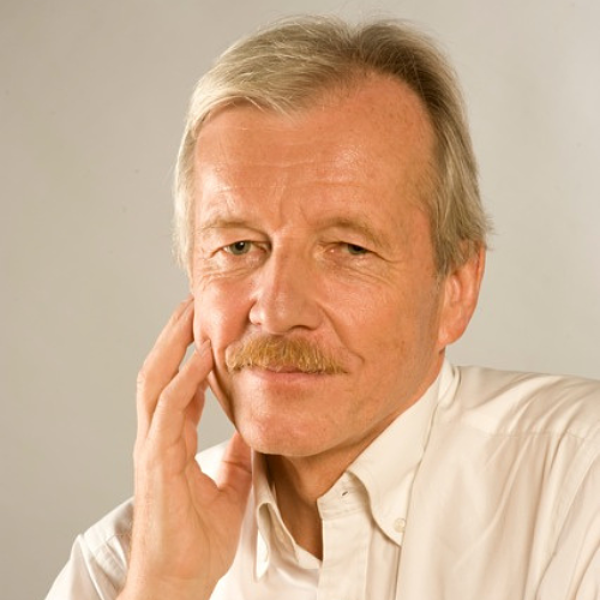
Dr Karl Lintner
PresidentKAL'IDEES Consultancy, France
SPEAKER
40+ Years of Promises... A Critical Review of the Anti-Ageing Technologies over the last Four Decades; Convergence of the Ingredient Space and Novel Mental Parameters Forging New Paths to Well-being Claims and Assessment
Biography
Dr Karl LINTNER obtained a Degree in Chemical Engineering from Vienna University (Austria) and a PhD in Biochemistry from the same University.
After 10 years of Research on Biological Peptides at the Nuclear Research Centre in Saclay, France (>30 papers in biochemistry and biophysics published), he became Laboratory Manager, then Marketing Manager (product development and worldwide technical support) with the HENKEL Company, Düsseldorf, Germany.
He joined SEDERMA in 1990 as Technical Director and later headed the company for ten years as Managing Director/CEO.
Presently, Karl Lintner is an Independent Consultant to the Cosmetic Industry (President of KAL’IDEES S.A.S.).
He teaches classes on cosmetic chemistry and skin biology at the ISIPCA school of Perfumery, Cosmetics and Aroma in Versailles.
He has filed several dozens of patents, published numerous articles and book chapters on cosmetic ingredients, and is an active member of SCC (chaired COSA in 2011) and SFC (France) and Editor-in-Chief of the Int. Journal of Cosmetic Science. He was awarded the prestigious Maison de Navarre Medal of the SCC in 2012 and won the In-Cosmetics Lifetime Achievement Award in 2013.Presentation Outline
The idea of embellishing our skin, hair and full body goes back at least 6000 years, maybe even 50000. From the archaeological and historical evidence, it is clear that people of all continents, regions and centuries took much effort and pleasure in preparing and applying hundreds of animals, botanical/herbal, marine and mineral derived substances in routines which we now call Personal Care. However, even after the beginning of a scientific approach to what we call Cosmetics, notions of product’s safety and “efficacy” remained second fiddle to the aim of looking good and feeling good. Even in the 1930’s we can still find creams containing the novelty of radioactive Thorium. All this has changed after WW 2 with the beginning of industrial scale formulation science, marketing, and advertising, and not to forget, regulatory interference. Superficially based on pharmaceutical practices of defining active principles (drugs) and measurements of product efficacy and safety, the cosmetic industry followed these footsteps under guidance of health authorities.
Over the last 4+ decades, cosmetic items of all sorts achieved phantastic success, applying scientific methods of ever-increasing sophistication (formulation, cosmetic skin and/or hair care, measurable improvements of appearance) with billions of consumers. We shall present examples of breakthrough ideas that have allowed us to talk about “anti-aging” for facial, body and hair surfaces, albeit all the while neglecting the convergence of the ingredient (“actives”) space with the increasing clamour from the consumers whose real purpose of Personal Care routines arises from mental parameters, well-being claims and their assessment. Particularly, this last aspect requires new technology when we talk about mental involvement, that is, measuring skin/brain connections and parameters. New instruments and analysis are taking the stage.

Dr Ali Assi
In Vivo Research EngineerLVMH Recherche, France
SPEAKER
Combining Imaging Technologies and Clinical Assessment for Multimodal Investigation of the Effects of Facial Skin Ageing in Healthy Women
Biography
Ali Assi is a specialist in analytical chemistry, with a focus on vibrational spectroscopy and skin biology. He earned his Ph.D. from Paris-Saclay University, where he worked on the oxidative stress effects of UV radiation on skin in collaboration with Pierre Fabre Dermo-Cosmétique. During his postdoctoral research at Lip(Sys)² in collaboration with DAMAE MEDICAL Labs, Dr. Assi applied LC-OCT and Raman spectroscopy to enhance cancer diagnosis in dermatology. Currently, Dr. Assi is an In Vivo Research Engineer at LVMH Recherche, exploring non-invasive analysis techniques to characterize skin and evaluate product efficacy, leveraging his expertise in advanced analytical methods for innovative dermatological research.
Presentation Outline
Age-related modifications in skin architecture hold significant importance in the fields of dermatology and cosmetic science, as comprehending the subtle alterations within facial skin is pivotal for the development of effective anti-ageing treatments. Traditionally, visualising and quantifying these changes non-invasively in vivo has presented challenges. However, recent advancements in high-resolution skin imaging techniques, particularly Line‐Field Confocal Optical Coherence Tomography (LC‐OCT) coupled with Artificial Intelligence (AI), offer 3D imaging capabilities that allow for the exploration of skin histology details with micrometric precision. AI algorithms further enhance the computation of quantitative histological and cellular metrics, providing deeper insights into the aging process. By combining LC-OCT with clinical scoring systems and biomechanical property measurements, it becomes possible to establish correlations between structural alterations beneath the skin's surface and the appearance of visible signs of ageing. Clinical studies involving hundreds of women volunteers have been conducted based on this multifaceted approach, providing a promising avenue for a comprehensive study of facial age-related skin changes, and advancing our understanding of the intricate relationship between skin structure alterations and the manifestation of aging signs.
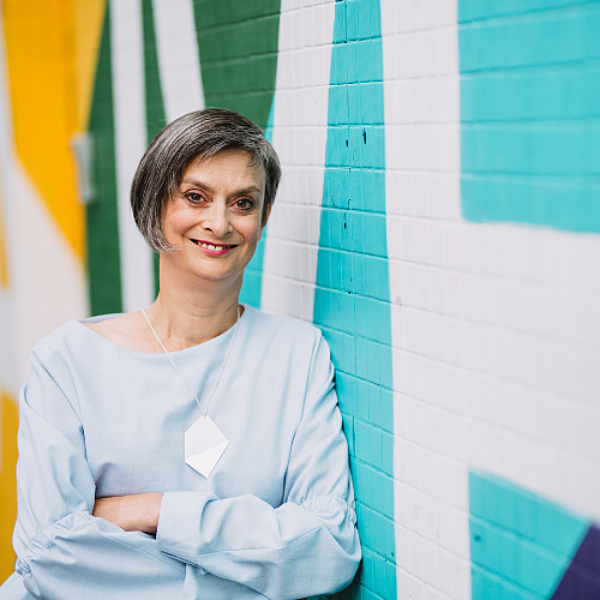
Helga Hertsig-Lavocah
Senior Forecaster & FounderHint Futurology, Ireland
SPEAKER
Futurology of Well-Ageing - Focus on Self-Confidence: Exploring Conflict between Utopia and Evolutionary Societal and Biological Systems
Biography
Helga Hertsig-Lavocah graduated in pathobiology as she wanted to be a forensic scientist, but lacked the patience to perform lab work, so now she tracks down trends (instead of criminals). She’s been freelancing since 2004, before that she worked at a fragrance house and in advertising.
Helga grew up in England, is half Danish, part many nationalities including French, Portuguese and Indian. She lived in the Netherlands for 24 years, and is now based in Dublin, Ireland.
This mix of passions, education and cultures is the perfect basis for a futurologist – trend forecaster: open minded, curious, never settled, yet grounded in the reality of fast moving consumer goods. Her secret weapon is her sponge-like brain that soaks up information, ferments it and makes links to other categories.
Helga supports multinationals in beauty, home care & food in their innovation process, with idea and concept generation based on cross category and cross sensory input. She is regularly invited to speak at industry events and to motivate internal teams with her straight talking vision.Presentation Outline
Self-confidence and self-acceptance are key to living well, well-ageing & therefore longevity.
The future of our industry, the health industry and the planet demand a radical acceptance of reality. However the utopia of a “natural ageing” world is at odds with basic societal & biological programming that favours the “beautiful” and the young. We see some green shoots, women in the public eye that apparently go bare faced, billionaires exploring life extension; but they have the wealth (and privilege) to invest in elaborate and extensive protocols.
In this presentation we will explore the challenge and necessity of democratising well-ageing, beauty & longevity.
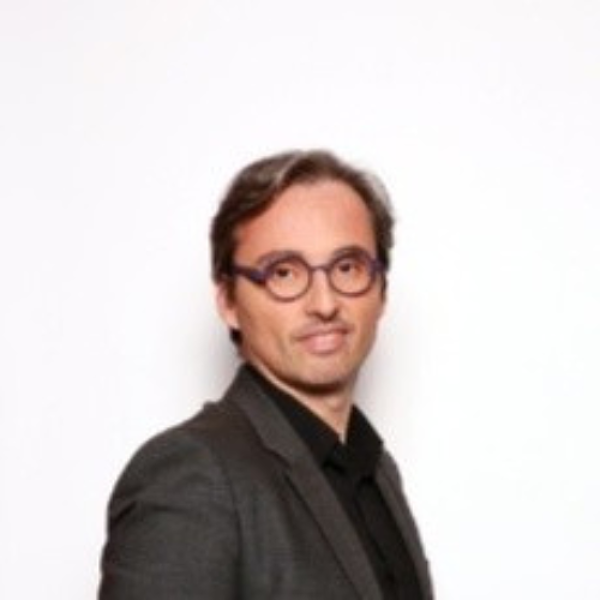
Luc AGUILAR
R&D Director - Microbiome and ExposomeL'Oreal, France
KEYNOTE SPEAKER
The New Frontiers of Longevity Science
Biography
Luc Aguilar is committed to pioneer and transform research into disruptive innovations in cosmetics to change consumer and patient’s life.
EXPERTISE
Luc Aguilar is a research biologist by training who gathers more than 25 years of experience in the biotech, pharmaceutical and the cosmetic Industry. He joined L’Oréal 12 years ago to build the biotechnology Department in Advance Research to develop nature-based ingredients. He gathers expertise in industrial biotech, cell and tissue engineering applied to skin and hair, and clinical development of cosmetics MD and drugs along with a deep understanding of regulatory paths to reach market authorization.
EXPERIENCE
Pioneering research on the skin microbiome at L’Oréal R&I for dermatological and cosmetics applications, he is currently leading globally Skin Microbiome and Exposome Discovery Domains
ACHIEVEMENT & INFLUENCE WITHIN THE SCIENTIFIC COMMUNITY
Skin microbiome dysbiosis and the role of Staphylococcus aureus in atopic dermatitis in adults and children: A narrative review. JEADV. 2023
Skin microbiome differentiates into distinct cutotypes with unique metabolic functions upon exposure to polycyclic aromatic hydrocarbons Microbiome 2023
Multi-omics analysis to decipher the molecular link between chronic exposure to pollution and human skin dysfunction. Sci Rep, 2021
La Roche Posay Scientific Board Member, Flash Therapeutics board member and President of the Biotech school ENSTBB Advisory board.Presentation Outline
For a long time, the cosmetics industry addressed the question of age by confining itself to the physiological effects of the years and the environment on the quality of skin and hair. Today's society is evolving, and our aspirations go beyond the notion of anti-age to that of Longevity.: living younger, healthier and for longer. At the same time, over the last ten years or so, we've seen a real revolution in the discoveries on the underlying causes of aging. Thanks to high tech and the emergence of a multitude of companies involved in very diverse fields of expertise, we're witnessing the birth of a new ecosystem around longevity, which is prompting us to approach this subject in a completely new way, both in terms of the areas of expertise to be addressed and our way of doing research.
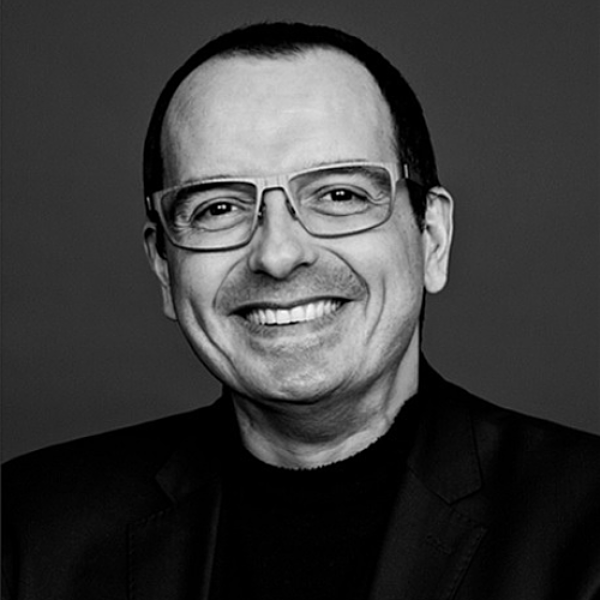
Dr Frederic Flament
Global Head of Claims Science - Evaluation IntelligenceL’Oreal, FRANCE
SPEAKER
Searching for Holistic Well-being Beauty Rituals: Daily Facial Massage Benefits
Biography
Frédéric Flament is fascinated by the impact that cultures, behaviors, and the environment can have on skin and hair. He is committed to improving the scientific community's knowledge and understanding of these topics by opening up pioneering approaches at the crossroads of expertise.
He is proud to put his skills in clinical and instrumental evaluation at the service of L'Oréal's research and activity.
EXPERTISE
An engineer by training and holder of a PhD in biophysics, Frédéric Flament has been working for over 15 years in the cosmetics industry in diagnostics, evaluation, and scientific communication around product performance. Throughout his career, he has acquired a solid knowledge of clinical
and instrumental evaluation of skin, scalp, and hair. A valuable asset for decoding consumer perception and sensory aspects using objective metrics. He has also developed recognized expertise in new imaging methods, biomechanics, biophysics, and artificial intelligence. As part of
the global R&I Evaluation Intelligence department, his team creates, validates, and ensures the acceptance of cutting-edge methods and technologies to irrefutably measure the performance of L'Oréal’s innovations and products. It also generates pioneering knowledge in cosmetics and
dermatology, on topics such as photoaging and photoprotection of the skin, inclusivity for hair and skin around the world, wellness, and male skin.
EXPERIENCE
Frédéric Flament joined L'Oréal R&I's Evaluation teams in 2005. During the early years of his career, he contributed to the international deployment and standardization of efficiency measurement and claims support methods, through the opening of several evaluation centers
around the world (India, Japan, China, Brazil). After 5 years as Head of International Instrumental Evaluation, he structured in 2019 the claims activity of R&I's Evaluation teams to support the performance of products and services for all the Group's brands. In his position, he supports the
implementation of new international regulations such as CSAR1
in China and collaborates with the cosmetics industry to gain acceptance for new evaluation methods. He and his teams are working to develop an increasingly connected evaluation system, open to the technologies and challenges of tomorrow.
-Holder of more than 15 patents, mainly for evaluation or diagnostic methods.
-Member of the editorial board of the International Journal of Cosmetics SciencesPresentation Outline
Currently, levels of stress, worry and sadness are increasing worldwide. Considered a part of healthcare, massage is associated with morphological, biological and psychological benefits. A study has been designed on 50 European women (40-60 years old) to evaluate the impact of a daily self-massage on the visible signs of stress on facial skin and well-being in women. This experiment showed that facial self-massage provided significant, visible clinical, and self-observed skin benefits, and feelings of well-being.

Dr Sam Samaras
Global VP of Science & Technology, Beauty and Personal Care R&DUnilever, US
KEYNOTE SPEAKER
Closing Speech
Biography
Sam is responsible for delivering innovations in the 25Bn Beauty and Wellbeing and Personal Care business across the Skin Care & Cleansing, Prestige, Deodorants, Hair and Oral Care categories. This includes disruptive technologies, external facing scientific authority, insights and claims, underpinned by leading edge scientific expertise and enabling capabilities. She is also responsible for clinical testing across the business which supports disruptive superior claims, and new fundamental understanding.
Prior to Unilever, Sam has over 20 years of experience across Pharmaceuticals and Consumer Healthcare, all focused on innovation. She spent a decade at Johnson & Johnson leading discovery research in the consumer sector, initially on beauty/skin needs then later leading innovation and claims strategy for the baby business. Sam became a fellow of J&J in 2009 and won the prestigious Johnson’s Medal in 2014. Prior to J&J, Sam spent 11 years at Merck focusing on infectious disease, in the area of Malaria, and natural product antibacterial discovery.
She received her MS from Seton Hall University, her PhD from University of Dundee and became a fellow of the Royal Society of Biology in 2016. When she is not learning something new in science, she spends time with her husband, three children, a goofy dog, and as much outside time as possible, for where there is nature there is beauty.Presentation Outline
Sam's presentation will delve into the 6 Themes outlined below:
1. The Interconnectedness Between Skin Health and overall Well-being, the importance of understanding how skincare contributes to holistic wellness: there is a shift towards a more comprehensive approach to skincare that considers not only surface appearance but also internal health and psychological factors.
2. Technology for Empowering the Body: technological advancements will be aimed at supporting the body's natural processes, to eg provide the skin with necessary precursors to produce essential components (like lipids and antioxidants) - a move away from merely treating symptoms towards enhancing the body's inherent ability to maintain skin health.
3. Personalised Skincare tailored to Individual Needs: no longer a one-size-fits-all approach, providing the body with what it needs to function optimally. By recognizing differences in genetics, stressors, and epigenetics, skincare products should be adapted to meet the unique requirements of each person.
4. Skin as a Communicator of Internal Health: skin has a role as a reflection of internal health. Scientific research has linked skin conditions to underlying physiological markers, such as glycation correlating with blood sugar level.
5. Psychological Impact of Skincare on Self and Social Connections: the significance of skincare contributing to individuals' psychological armor and influencing how they perceive themselves and interact with the world cannot be underestimated. By feeling good about their appearance, people can experience enhanced confidence and social connections. Underscoring the importance of social connections for overall well-being, there is an interplay between physical appearance, self-esteem, and social engagement in promoting mental wellness.
6. Quality of Life: living more fulfilling life characterized by cognitive health, happiness, and meaningful connections. This perspective challenges the notion that longevity alone equates to a good life, emphasizing the importance of holistic well-being.
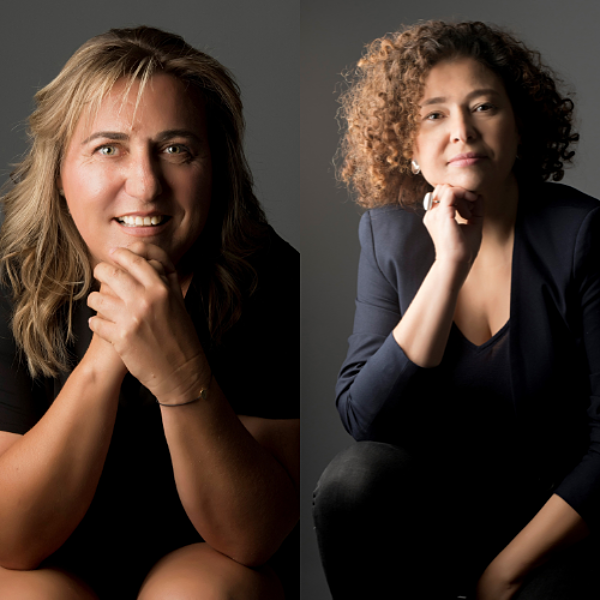
Begoña Sanjuán & Isabel Ramos
Creative Director / CEO & Chief Scientific OfficerAYUNA, Spain
SPEAKER
Mental Beauty: Changing the Dialogue in the Industry
Biography
Begoña is renowned for her visionary approach to beauty, complemented by an innate ability to anticipate future trends. Born into a family deeply immersed in aesthetics, she has amassed over thirty years of international expertise in both wellness and aesthetics. Begoña's pioneering contributions range from innovative cosmetic products and treatments to unique wellness rituals and transformative retail experiences, most notably for Natura Bissé. Esteemed venues such as Neiman Marcus, Bergdorf Goodman, Ritz Carlton, Four Seasons, and even the Hollywood Oscars have showcased her ideas. In addition to product development, she has designed and spearheaded courses in aesthetics, massage, spa excellence, and oncology aesthetics.
Together with Isabel Ramos, they launched AYUNA in 2017, introducing the “clean beauty revolution” to the luxury space and championing concepts such as well aging, less is beauty, and mental beauty.
From an educational perspective, Begoña's path reflects a harmonious blend of knowledge and creativity. She seamlessly merged her holistic wellness and aesthetics background with an in-depth understanding of pedagogy, further enriched by her studies in luxury sector marketing and business.
Isabel is an expert in Green Technology and the development of cleanical cosmetics. At the core of her being is a deep focus in understanding the science the behind the skin, biochemical and biophysical mechanisms, and the art of product textures.
She is co-founder and Chief Scientific Officer of AYUNA and has a 26 years’ experience in the dermo-cosmetic industry as Technical, R+D+I Director and Chief Scientific Officer in companies of professional, retail-prestige, dermo pharmaceutical and active ingredients and as consultant for the whole cosmetics chain value.
Her educational background is Organic Chemistry (BSc and PhD) at the University of Barcelona, performing the research work at the Spanish National Research Council (CSIC), and with stays as undergraduate student at the London University and as predoctoral fellowship researcher at the Leiden/Amsterdam Centre for Drug Research. She holds Masters in Management and Leadership in Science and Innovation (Pompeu Fabra University) and Cosmetology and Dermo-cosmetics (University of Barcelona). From 2009 she is Scientific Affairs Responsible and board member at the Spanish Society of Cosmetic Chemists (SEQC).Presentation Outline
In today's beauty landscape, the line between self-care and skincare is increasingly blurred, and we have the unique opportunity to bring daily moments of joy and serenity to people's lives. A groundbreaking study titled "Mental Beauty: The Unexplored and Positive Impact of Cosmetics on Self-perception and psychological well-being" was led by AYUNA less is beauty in partnership with the University of Zaragoza's Department of Physiatry and other entities; it was presented at the thirty-third Congress of the IFSCC, delved into the transformative concept of "MENTAL BEAUTY." The findings reveal that the daily use of cosmetic products can improve one's self-perception, especially when combined with techniques like mindfulness and intention in skincare rituals.
In our presentation, we seek to introduce a transformative perspective to cosmetic science. Given the pervasive societal pressures and unrealistic beauty stereotypes, particularly propagated by social media, it's evident that our collective self-esteem has been adversely affected. We aim to challenge these prevailing norms and inspire a more positive, authentic, and mindful approach to beauty.
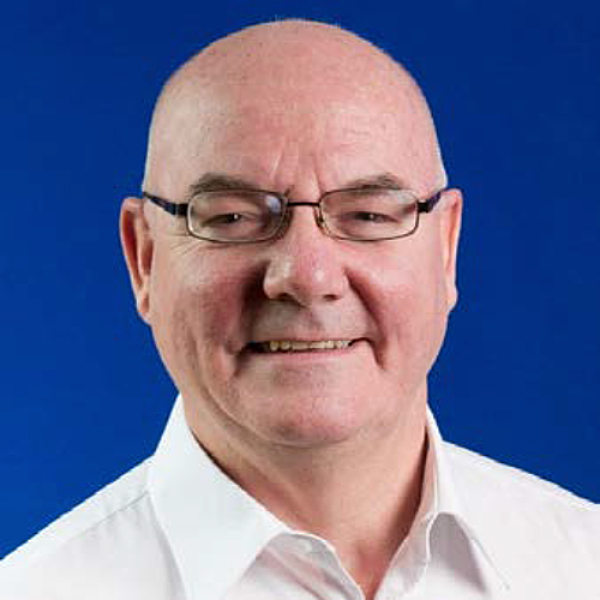
Biography
Jack Ferguson obtained a BSc honours degree in Biology with Chemistry and a PhD in Bioengineering, both from Strathclyde University, Glasgow. He has worked in the cosmetics industry for over 20 years. After spending some time with Beecham Products in Leatherhead, he moved to the Boots Company in Nottingham, where he worked for 15 years. His final responsibilities were as Head of R&D Services, Boots Contract Manufacturing. During his time there he was joint developer and promoter of the Boots UVA star rating system.
From Boots, Jack moved to Oriflame International, Dublin, and was R&D Director there for five years, before leaving in 2000 to set up a new company, Skinnovation Ltd. Skinnovation provide contract product development services for clients and focus on sun and skin care products and also on product claims support for advertising.
Jack also works as cosmetics consultant for ITV, providing technical and scientific advice on claims support for television scripts in advance of broadcasting. He has been active in the Cosmetic Trade associations, particularly in the sun care area, and was the chairman of the Colipa ‘Sun Protection Measurement' TF 1990-1998 and chairman at the time the Colipa SPF test was developed and published.
Jack has published and presented several papers on sun care and skin care. He is a past president of the Society of Cosmetic Scientists GB (1993-94) and was the Scientific Programme Chairman for the IFSCC Congress in Edinburgh 2002. He was a trustee and treasurer of the charity FRAME (Fund for the Replacement of Animals in Medical Experimentation) from 2004 to 2009. Jack used to work as the programme organiser for the Sun Protection and Anti-Ageing Skin Care conferences in London.Presentation Outline
Coming soon!
